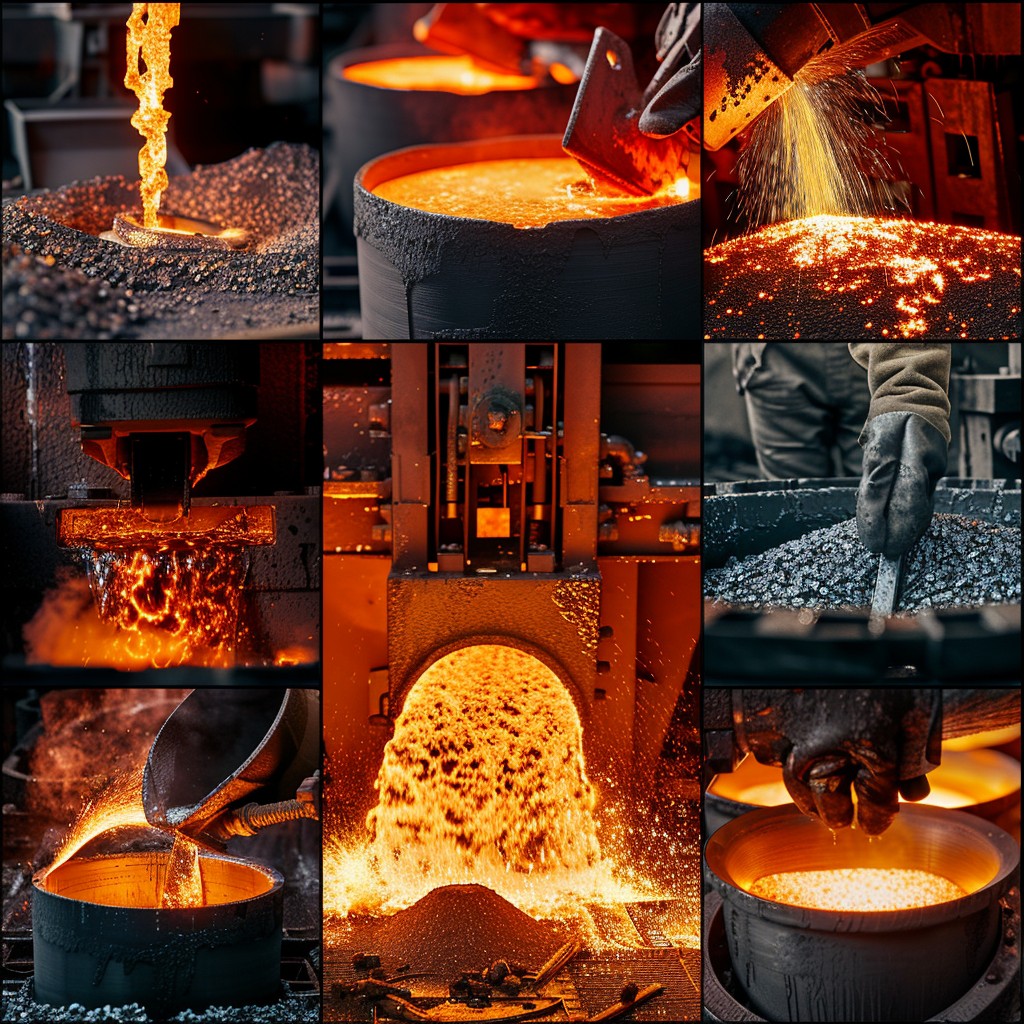
When it comes to selecting materials for industrial components, steel and alloys are two of the most commonly considered options. Each has its unique properties, benefits, and ideal applications, so understanding their differences is crucial for manufacturers and engineers alike. In this blog, we’ll dive into the properties of both materials, compare their applications, and explore when each material may be the better choice for various industrial needs.
Understanding Steel
Steel is primarily an alloy of iron and carbon, with small amounts of other elements such as manganese, silicon, and sulfur. The carbon content in steel provides strength and hardness, while other added elements enhance specific properties such as corrosion resistance or toughness.
Key Properties of Steel:
- Strength and Durability: Steel is known for its high strength, which makes it suitable for load-bearing structures and heavy-duty applications.
- Cost-Effectiveness: Due to its wide availability, steel is generally less expensive than specialty alloys.
- Versatility: Different types of steel, such as stainless, carbon, and tool steel, offer unique properties tailored to specific industrial requirements.
- Recyclability: Steel is one of the most recyclable materials, making it an eco-friendly option for manufacturing.
What are Alloys?
Alloys are created by combining two or more metals (or a metal with non-metal elements) to create a material with enhanced properties. By adding elements like nickel, chromium, molybdenum, and titanium, alloys can be tailored to meet precise requirements for strength, flexibility, corrosion resistance, and more.
Key Properties of Alloys:
- Enhanced Performance: Alloys can be engineered to withstand high temperatures, corrosion, and extreme wear.
- Specialized Properties: Certain alloys, like titanium and superalloys, offer exceptional resistance to oxidation and can maintain integrity in challenging conditions.
- Lightweight Options: Some alloys, such as aluminum alloys, provide high strength while remaining lightweight, which is ideal for applications where weight savings are essential.
Steel vs. Alloy: Comparing Their Applications
- Construction and Infrastructure
Steel is a staple in construction due to its strength and durability. Structural steel is used in buildings, bridges, and industrial frameworks, where long-term stability is essential. However, certain alloys are also used in construction, particularly in environments requiring enhanced corrosion resistance, like coastal infrastructure. - Automotive and Aerospace Industries
In the automotive industry, both steel and alloys play critical roles. Steel is used for structural parts, while aluminum alloys are preferred for parts that need to be lightweight. In aerospace, high-performance alloys such as titanium and superalloys are essential due to their ability to withstand extreme temperatures and reduce overall aircraft weight. - Manufacturing Equipment and Tools
Steel is commonly used for machinery, tools, and industrial equipment due to its toughness and wear resistance. However, for applications requiring additional strength or temperature resistance, specialty alloys are often the better choice. Tool steels, for example, are an alloy group specifically engineered for cutting tools and molds. - Medical and High-Tech Industries
In the medical field, biocompatible alloys like titanium are used for implants and medical devices. Their corrosion resistance and non-reactivity with body fluids make them ideal. Steel, while used in medical instruments, is less suitable for implantable devices due to corrosion concerns over time.
When to Choose Steel vs. Alloy
- Choose Steel If: The application requires high strength, cost-effectiveness, and durability without extreme environmental demands. Steel is ideal for structural frameworks, manufacturing machinery, and general-purpose industrial applications.
- Choose Alloys If: The application requires enhanced properties, such as resistance to corrosion, heat, or wear. Alloys are ideal for aerospace, marine environments, and any application where weight or extreme environmental conditions are factors.
Looking for Quality Industrial Components?
At Stelco, we provide customized steel and alloy components suited to your specific needs. Reach out to our team to find the best material for your application. We follow global material standards: ISO Standards for Metals
Conclusion
Both steel and alloys have their unique benefits and ideal applications in the industrial sector. While steel is more cost-effective and versatile, alloys offer specialized properties that make them invaluable in demanding applications. Choosing the right material depends on understanding the application’s requirements and the environment in which it will operate. Stelco’s range of steel and alloy components is designed to meet the highest quality standards for a wide range of industrial needs.